The Peculiar Diversity of Europe
I have previously published The Borders of Europe; let's take a look at another aspect of this peculiar part of the world: its diversity. In my opinion, this diversity is, or was, what made Europe evolve so enormously during a few centuries that it came to dominate the world, culturally, economically and militarily. The diversity is politically suppressed and it is no longer what it has been, but it is not entirely gone.
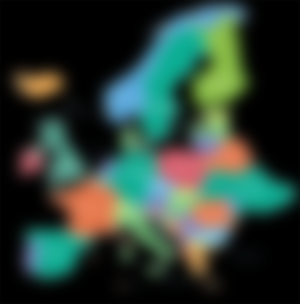
I. Characterisation of Europe
What is the most important characteristic of Europe? To me it is strong social variety and diversity in a relatively small area. This is what makes Europe particularly interesting and what once made it explode in creativity and wealth somewhere around the Renaissance until about 200 years ago. The present strivings toward equality and harmonisation (read: conformity) are killing it.
The supporters of the European Union claim to aim at making Europe great again; but they will fail, because they don't understand what once made it great. The remedy they try is just more of a medicine that is killing the patient. They might create a monster of violent strength, a techno-barbarity, but no civilisation.
European civilisation and culture, which rose and developed during and after the Renaissance till quite recently (historically seen), was a result of the local differences and the dynamic creativity these differences generated. It was a result of the friction along various borderlines between geographical, ethnic, religious, economic, political, philosophical and other differences.
All empires die, because they deny and suppress diversity, and thus they stagnate. Pax Romana, the long Roman peace, was a slow cultural suicide. The European Union is on its way to commit suicide too, although not necessarily that slow.
Despite this contemporary trend, there are still a number of small and in some ways different places in Europe. Very small sovereign states, autonomous areas, enclaves, and special zones of various sorts. We will briefly look at some of them below. The space is limited, so I'm sorry to say that I cannot treat them in detail now, and I do not claim to be exhaustive. There are areas I am not mentioning.
Many of these areas have special judicial and economical features, and some of them are - or have been until quite recently - veritable tax havens. This and the creative use of contrasting legal systems are what literature on these areas used to concentrate on. But don't always trust a marketer who tries to make you utilize one of these features, because what he says is not always true! Or, he can conceal some important factor. After all he tries to sell you something. (Take warning from the section on Campione below.) However, I am not focusing on the aspect of financial strategy.
Of course there are always cultural aspects of small communities too. On islands or in remote mountain valleys, people tend to hang on to old customs longer, and to be less inclined to join all the temporary whims of the times.
But before we discuss specific places, we have to define Europe. I did so (geographically) in The Borders of Europe, so I will not repeat that here.
II. Small Communities Of Europe
THE PRINCIPALITY OF ANDORRA is the world's only co-principate. According to tradition, Charlemagne (724-814) gave Andorra its independence, in gratitude for their help in the war against the Moors. Although Andorra's independence is very old, there is no evidence supporting this tradition.
What we know is that in 1287, Andorra was under the rule of the Spanish Bishop of Urgel and the Count of Foix - as co-princes. This continues yet, although the count's prerogatives first went to the French kings and later to the French presidents.
THE PRINCIPALITY OF LIECHTENSTEIN, consists of two countries which previously belonged to the Emperor of the Holy Roman Empire: the barony, Schellenberg, and the county, Vaduz. These were bought by Johan Adam von Liechtenstein in 1699, respective 1712. The emperor merged the countries in 1719, and made them a feudal principality within the empire. In 1866, Liechtenstein became a sovereign state under Prince Johan II (1858-1929).
THE PRINCIPALITY OF MONACO's first inhabitants probably were Phoenicians. The Genoese did build a castle there in 1215, and in 1297 the power went to the house of Grimaldi. This got extinct in 1731, and the country went to the French dynasty, Goyon de Matignon, who took the name "Grimaldi". This house too got extinct and in 1949 Monaco went to the house of Polignac. The present prince is the second of this house.
Monaco was long a fief under various states and monarchs, but became sovereign in 1861.
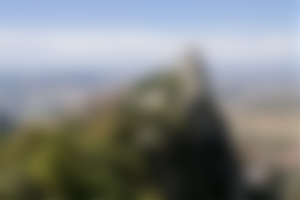
THE MOST SERENE REPUBLIC OF SAN MARINO, located in the Apennines and totally surrounded by Italy. It is the oldest remaining republic of Europe, and maybe in the world.
According to legend, the first inhabitants were led there by a Christian stoneworker, Marino, who had fled from Dalmatia due to his Christian belief. San Marino's "de facto" sovereignty is documented as early as 885, but it was not "de jure" recognised by the Pope until 1631.
THE VATICAN (CITY) STATE, the world's smallest sovereign country (unless one counts SMOM, more on that below) was created in 1929, as a result of a long conflict which had lasted since the last remnants of the old Church State were forced into a unified Italy in 1870.
It is the centre of Roman Catholicism and the official residence of the Pope as well as the central management of the Church. It contains priceless collections of art and books. Of course it has no taxes, and a Vatican passport can be very useful, although not very easily available.
Trading in the Vatican is surprisingly active, and it is possible to buy things one would not expect to find in such a place. Contraceptives, for instance!! But you need a special ID-card to benefit from the tax-free trading there.

ATHOS (Hagion Oros - the holy mountain), or the AUTONOMOUS MONASTIC STATE OF THE HOLY MOUNTAIN.
This is an autonomous (self-governing) monastic state within the borders of Greece. Its spiritual sovereign is the Ecumenical Patriarch of Constantinople. It has an area of ca 390 square kilometers and consists of 20 monasteries. 17 of them are Greek Orthodox; while Russian, Serbian, and Bulgarian orthodoxy has one each, and there are two Romanian cloisters.
The first monks probably were hermits in the 7th century, possibly arriving as refugees from Egypt, which was won by Islam at that time; but the first real monastery, Laura (or Lavra), was founded by Athanasius (the Athonite) of Trapezunt in 963. Under the protection of Byzantine emperors and local princes, the importance of Athos grew, and during otherwise turbulent times it became a centre for the spiritual and artistic life of the Byzantine epoch. By skilled diplomacy, they were able to keep that status during the Ottoman time as well.
During the 19th century, the Russian influence became substantial, later on followed by the gradually less oppressed Balkan states - and Athos became more internationalised.
In accordance with a Decree 1913 and a long list of international treaties (London 1913, Bucharest 1913, Neuilly 1919, Sèvres 1920, and Lausanne 1923, Athos is a part of the Greek state, although it is self-governing and has its own constitution. Its special status is explicitly accepted by the European Union.
Athos is like an art museum, full of Medieval art, especially of the late Byzantine style.
This autonomous state is entirely without taxes, but entry is forbidden for females, beardless youngsters, eunuchs, and children.
Trading with art, antiquities and religious objects is common. If you want to sell something, you have to enter a monastery as a novice and make an arrangement with the superiors there.
A few men have used Athos as a backdoor to citizenship in Greece (an EU country). To do this, you must lack religious objections to enter a monastery as a novice. As a monk in Athos, Greek authorities cannot force you to leave when your visa expires. Presenting the problem of an expiring visa to your superiors, they can arrange a Greek passport for you, so you can "continue your religious studies".
It should be noted that as a novice you can always leave both Athos and the monastic life. There is no guarantee though, that a passport thus issued cannot be withdrawn if the whole procedure looks too much as an abuse. And don't imagine that it is just an automatic routine to become a novice and then ask for a passport. You will have to participate actively in the religious life of the monastery and it is likely that you would be asked to leave if you do not appear to be serious in your religious interest.
Even if you don't want to become a monk, a visit to Athos can be worthwhile, especially if you are interested in art and history. You will have to conform to local life while you stay, but you get free food and accommodation. You may stay overnight, however, only if you are there for study and research. And, again, you have to be male!

GENEVA used to belong to France, but joined Switzerland in 1789 for religious reasons, and they became a Swiss enclave in France. (At that time, the area around it belonged to France.) The Vienna Convention of 1815 stipulated that Geneva be connected with Switzerland by a corridor. The canton (Geneva) got a hinterland in the Savoy heights, and the customs border for that purpose was set 4 kilometers inside France. This zone was further promulgated by the International Court of Justice in The Hague in 1934, and it is called the Geneva Free Zone. It still has some legal implications for business and immigration matters that can be favourably used.
CAMPIONE is an Italian enclave in Switzerland. Technically, Italian tax applies, but in most instances a resident can ignore that and stay tax-free. The Italian taxman cannot reach you since, for practical purposes, you are on Swiss soil.
This was the reason why Campione was (until quite recently) marketed as a place for foreigners to set up a residence. It was mostly aimed at Americans. There they could get Italian residence (just to register in the registrar's office in Campione, if you have an address), then for practical purposes live in Switzerland, stay tax-free, and after five years of residence (in Italy), they could apply for an Italian passport - and thus get a EU citizenship/passport!
The residences these marketers sold in Campione were not cheap. Anyone contemplating this sort of step should stop for a moment and think. Italy is not likely to recognise the five years of residence as a legitimate ground for a passport/citizenship unless you paid Italian taxes while officially residing there!!
VALLE DE ARRAN is a Spanish territory in the Pyrenees. The Valley voluntarily joined the Kingdom of Spain in 1313, with extensive autonomy and on the explicit condition that they may leave again at any time they choose. This treaty is still valid. Yet they were forced into the Constitution of Cadiz 1912, but never accepted it or agreed to it. They still require the fulfilment of the treaty of 1313.
LLIVIA in the Pyrenees, a Spanish enclave in France, is a result of the "Peace of the Pyrenees" in 1659, between Felipe IV and Louis XVI. They simply forgot this town, and it happened to remain Spanish!
OS DE CIVIS is a Spanish territory, accessible only through Andorra. It has many advantages, but a detailed description is beyond the scope of this article.
BüSINGEN, is a German enclave in Switzerland. JUNGHOLZ and KLEINWALSERTAL are two Austrian enclaves in Germany. The two latter belong to the German economic zone but Austrian bank law applies. This was more useful before the time of the Euro and the European Union than it is now.
SAMNAUM is a Swiss territory, which was previously reachable from the rest of Switzerland only during summer - otherwise only through Austria. Since 1913 they have direct roads to the rest of Switzerland, but certain enclave conditions remain.
LIVIGNO is an Italian enclave and winter sports eldorado, with some enclave characteristics.
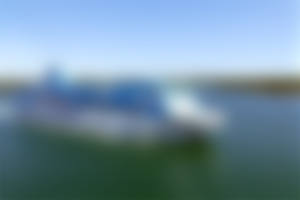
ÅLAND is an autonomous province of Finland and consists of an archipelago in the Baltic Sea, between Sweden and Finland. They have their own parliament, judicial system, their own flag and stamps.
THE FAEROE ISLANDS are a part of Denmark, but have full autonomy, their own parliament and judicial system. They are not a part of the European Union.
SVALBARD is an external possession of Norway. It is not autonomous, but has a special tax status, with very low taxes in otherwise high taxing Norway. Despite this, it is not attractive. It is situated in the Arctic Ocean, it is dark between the end of October till the beginning of March, and it is cold.
The CANARY ISLANDS belong to Spain, but have reduced tax, so called canary status.
The AZORES, and MADEIRA, are both autonomous areas of Portugal. Apart from a lovely island climate in the Atlantic, both offer some business advantages.
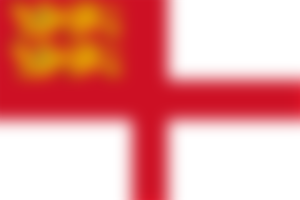
Britain has several autonomous dependencies. GIBRALTAR, ISLE OF MAN, JERSEY, and GUERNSEY & DEPENDENCIES, all with their special features.
The two latter constitute the CHANNEL ISLANDS, where all the isles except Jersey belong to Guernsey & Dependencies. The Dependencies are other islands, all with a high degree of separate autonomy.
The Channel Islands are interesting because they are what remains of the Archduchy of Normandy, which belonged to William the Conqueror before he conquered England in 1066. Thus they are not a part of the United Kingdom or the Great Britain, but are described as autonomous states within the British Commonwealth.
If you want to know more about the unique political structure of the British Isles, see The Structure of the British Isles.
III. Some Extra Peculiarities
MICHELBUCH, near Heidelberg in Germany was granted an official status in the time of the emperor William. It can never be annexed by any municipality. Only a couple of individuals live there and they are practically free from municipality tax. The estate belongs to the Hessian Church.
SMOM, THE SOVEREIGN MILITARY ORDER OF MALTA, the smallest state in the world. They don't own any territory except their estate in Rome. Legally it is an extraterritorial territory, with its own jurisdiction. For more details about the Knights of Malta, see The Knights of Malta: Legitimate or Not?
BEMPOSTA is an autonomous republic in northern Spain. It was founded in 1956 by Father Jesus Maria Silva. There is a local currency and no taxes. The state is fully respected by Spain. There is just one problem, Bemposta is a state for children. You must be under 18 years of age to benefit from it.
(This Bemposta has nothing to do with the Portuguese place with the same name.)
In a river close to the Basque city, Irun, there is a strange isle, ISLA DE LOS FAISANES. It is strange because every half year it changes nationality. Half a year it is French, half a year Spanish. Residing there could give some interesting legal consequences. But that is just in theory, the isle is uninhabited and hardly suited for residence.
FRANCO-SUISSE is a hotel in the city, La Cure, by the border between France and Switzerland. The interesting thing about this hotel is that the border between France and Switzerland goes right through it. Sometimes even across a double bed!
Related articles:
The Structure of the British Isles
The Knights of Malta: Legitimate or Not?
Copyright © 2007. 2012, 2022 Meleonymica. All Rights Reserved.
All my articles about history can be found here, and those about geography here.
You find all my writings on Read.Cash, sorted by topic, here.
If you are interested in history, join my community History, Myths, Legends & Mysteries (be45).
Images:
Map over Europe: by Venita Oberholster/Pixabay, CC0/Public Domain.
Castle of San Marino: by Lucio Alfonsi/Pixabay, CC0/Public Domain.
Athos: by Ion Oroles Manolache/Pixabay, CC0/Public Domain.
Geneva: by ChiemSeherin/Pixabay, CC0/Public Domain.
Ferry from Sweden, approaching Mariehamn, the capital of Åland: by falco/Pixabay, CC0/Public Domain.
Flag of Sark, one of the autonomous Channel Islands: by OpenClipart-Vectors/Pixabay, CC0/Public Domain.
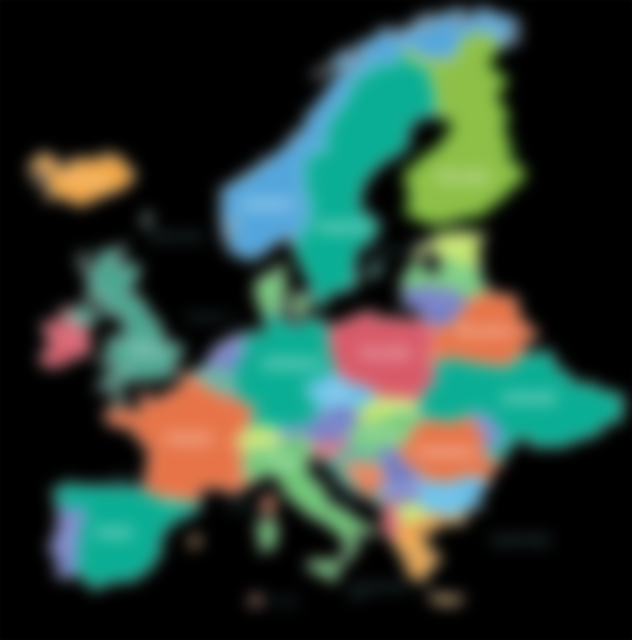
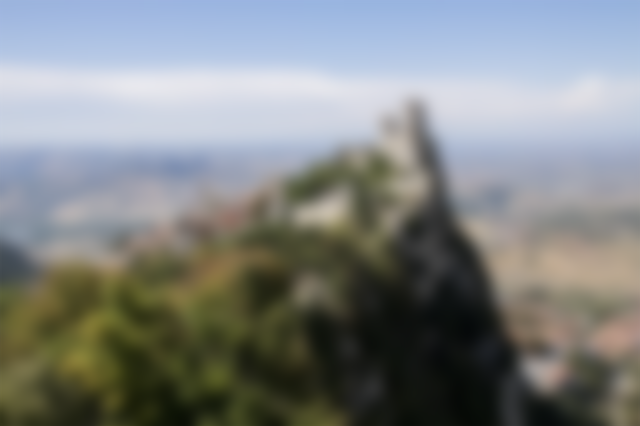
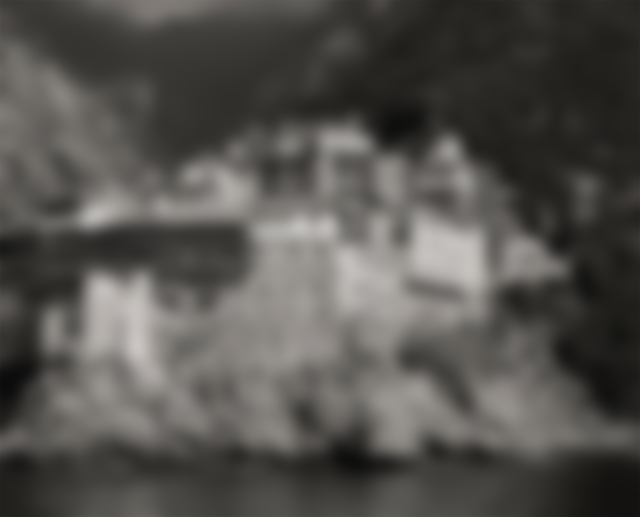
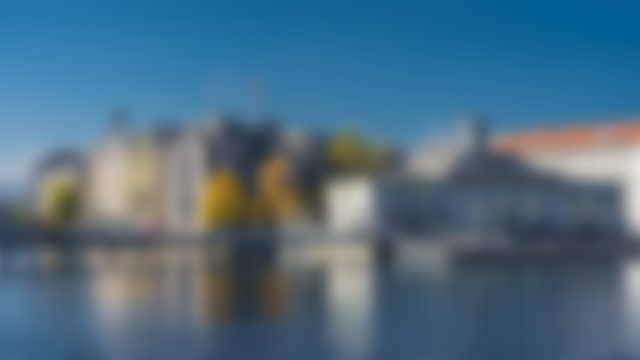
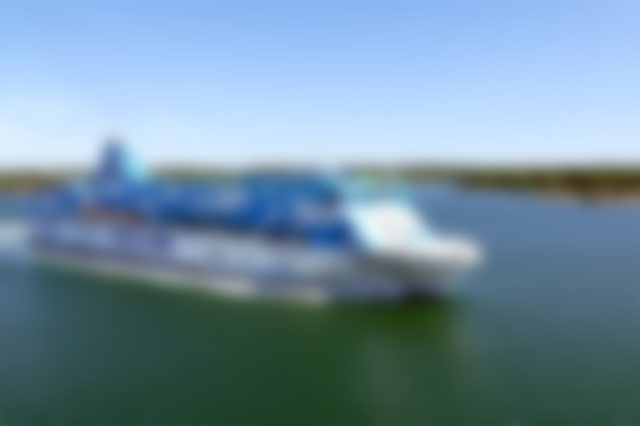
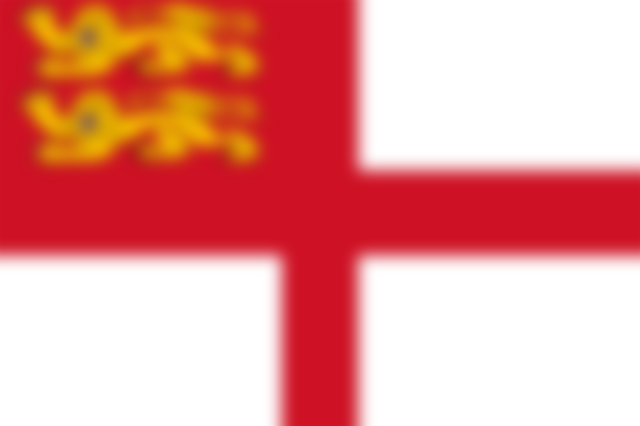
Probably one of the most interesting article I read ever